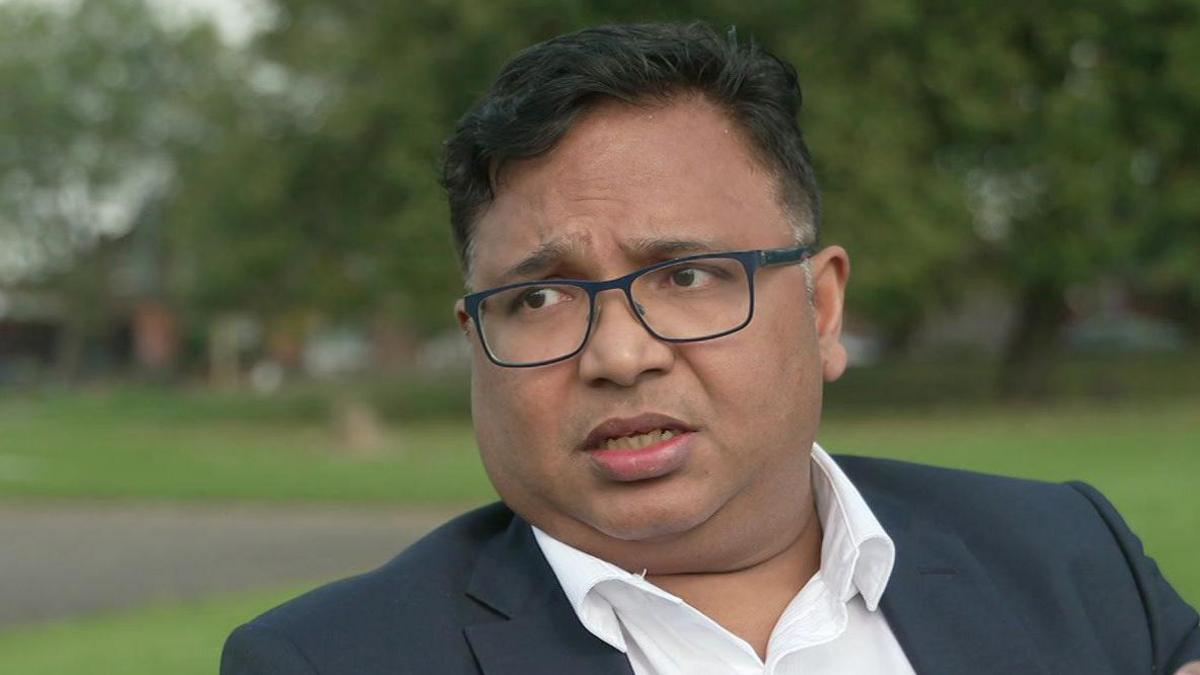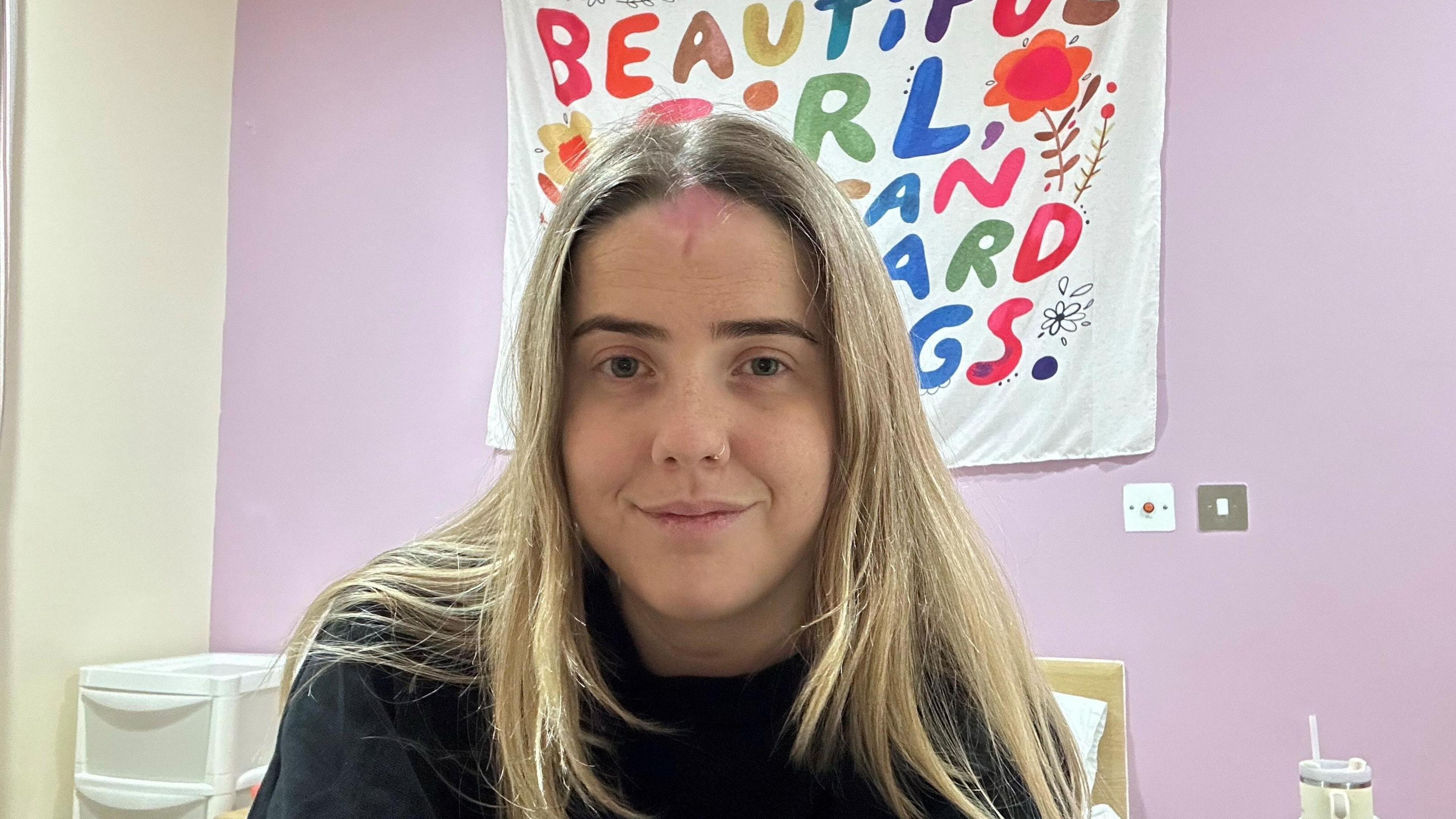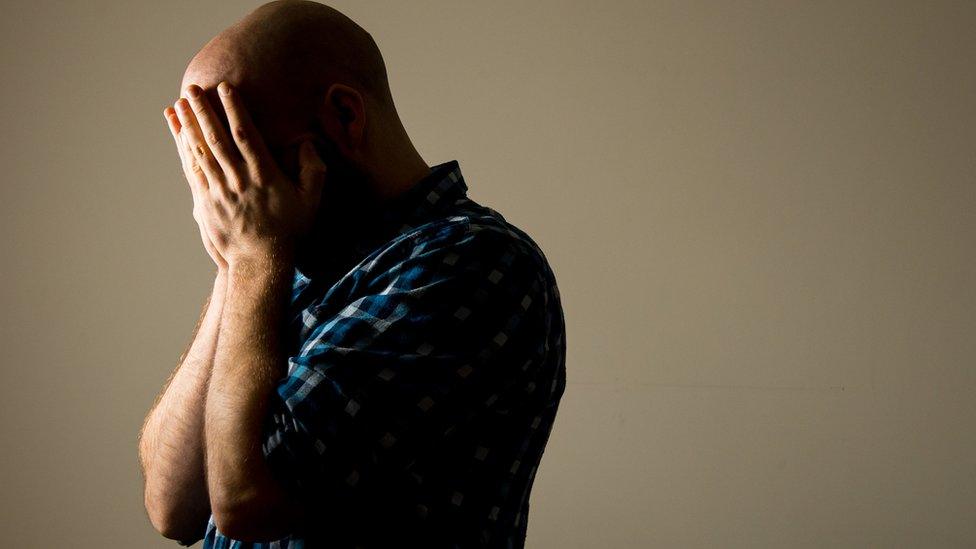Mental health care service on its knees - doctor

Dr John Mulligan says there has been a "serious decline" in support for people needing mental health care which is "unacceptable"
- Published
A city's community mental health service is "on its knees" and patients are dying due to the lack of staff and funding, according to a clinical psychologist.
Dr John Mulligan, who works for one of Manchester's Early Intervention in Psychosis teams, said union members were set to strike next week over concerns for patient safety due to understaffing.
It comes as a freedom of information (FOI) request by the BBC revealed the North West's NHS hospital trusts spent £45m more on private mental health care beds in the last three years.
Dr Nish Mathew, of the Royal College of Psychiatrists (RCPsych), said with cuts to NHS beds for mental health care, sourcing private beds was the "next best option".
The government said it would "fix the broken system" by recruiting 8,500 more mental health workers and reforming the Mental Health Act.
Dr Mulligan said: "There's this big community transformation that's happening at the moment and that community transformation I'm putting in inverted commas because we don't have any funding for it in Manchester."
He said for the first time union members in the Manchester Early Intervention in Psychosis teams were set to strike over understaffing on 16 October.
"We are absolutely on our knees in terms of the services at the moment and the death rates have increased significantly.
"We’ve noticed a serious decline in the quality of service that our patients and their families are getting," he said, adding it was "unacceptable".
On the cost of private mental health care beds, he said: "They are paying out all of this money and there's no money left."
'Forgotten ones'
He claimed patients were dying due to lack of staff and said: "We're having service users in Manchester dying and we have to think to ourselves, 'what are we doing for our most vulnerable members of our local community?'."
Dr Mulligan said people in an acute crisis requiring hospital admission faced a "massive queue".
"There's a serious lack of staff on the frontline, ready to be able to support people," he said.
The ratio of therapists to patients in the Manchester area community mental health teams is one therapist to just under 600 patients, he said.
Dr Mulligan said it had taken its toll on staff, adding: "We have a lot of people who unfortunately have died over the last few years so we do take it personal and it is pretty painful."
He said: "Sadly it feels like our service users in community mental health teams and early intervention [are] the forgotten ones."
He said "ultimately it's got to be central government" that fixes the crisis and it would need "a huge investment to break the vicious cycle".

Dr Nish Mathew said with a surge in demand and NHS cuts, private beds were the "next best option"
Dr Mathew, chairman of the North West division of the RCPsych, said the number of mental health care beds in the UK was about 50,00 in 2001 but it was less than 25,000 now.
He said the idea was to treat patients in the community instead.
However, he said it had not been properly funded and care in the community was "not at the place where we want it to be", resulting in the NHS paying up to £1,000 a night for private mental health care beds.
"Across the region, the numbers show there is still a need for those beds because you have to keep someone safe," Dr Mathew said.
"If keeping them in their communities is not an option then you have to source the next best option. We have to source a private bed."
Data from the FOI shows Cheshire and Wirral Partnership NHS Foundation Trust had the biggest spike in spending on private mental health care beds.
It spent £12.5m more on private mental health care beds in 2023-24 - a rise of almost 54,000% - compared with 2020-21 when it paid just over £20,000.
However, Mersey Care NHS Foundation Trust is bucking the trend by slashing its spend on private mental health care beds in 2023-24 to £20,330 while it laid out £2.5m in 2020-21.
A spokesperson for NHS Cheshire and Merseyside said "in line with the rest of the country", it had seen an increase in demand on mental health services "which has called for additional capacity" and private beds were used "where it is clinically appropriate".
They said the trust was working with partners "to utilise all capacity available - including the use of the independent sector - to improve the flow of patients across Cheshire and Merseyside".
Greater Manchester Mental Health Care NHS Foundation Trust spending has jumped from £5.6m in 2020-21 to £14.5m in 2023-24.
In August, the BBC reported Greater Manchester had seen the largest increase in sending mental health patients out of area.
The trust has been contacted by the BBC for comment.
'Safe care'
Lancashire & South Cumbria NHS Foundation Trust spent £50.4m on private beds - almost double the £27.7m in paid out in 2020-21, while Pennine Care NHS Foundation Trust spent £6.4m in 2023-24 on private mental health beds as opposed to £2.6m in 2020-21.
Lancashire and South Cumbria NHS Foundation Trust's chief operating officer, Emma McGuigan, said: "Where we do not have a bed to offer, we find alternatives to ensure individuals can receive proper and safe care.
"Bed occupancy remains consistently high in our area and we are working with our partners to look at new provision so we can offer more places for our patients within the areas we cover."
A Department of Health and Social Care spokeswoman said: "People with mental health issues are not getting the support or care they deserve, which is why we will fix the broken system to ensure we give mental health the same attention and focus as physical health.
"We will start by recruiting 8,500 more mental health workers to cut waits for treatment, and will also reform the Mental Health Act, to ensure people with the most severe mental health conditions get better, more personalised care."
Related topics
- Published1 August 2024

- Published1 November 2023
